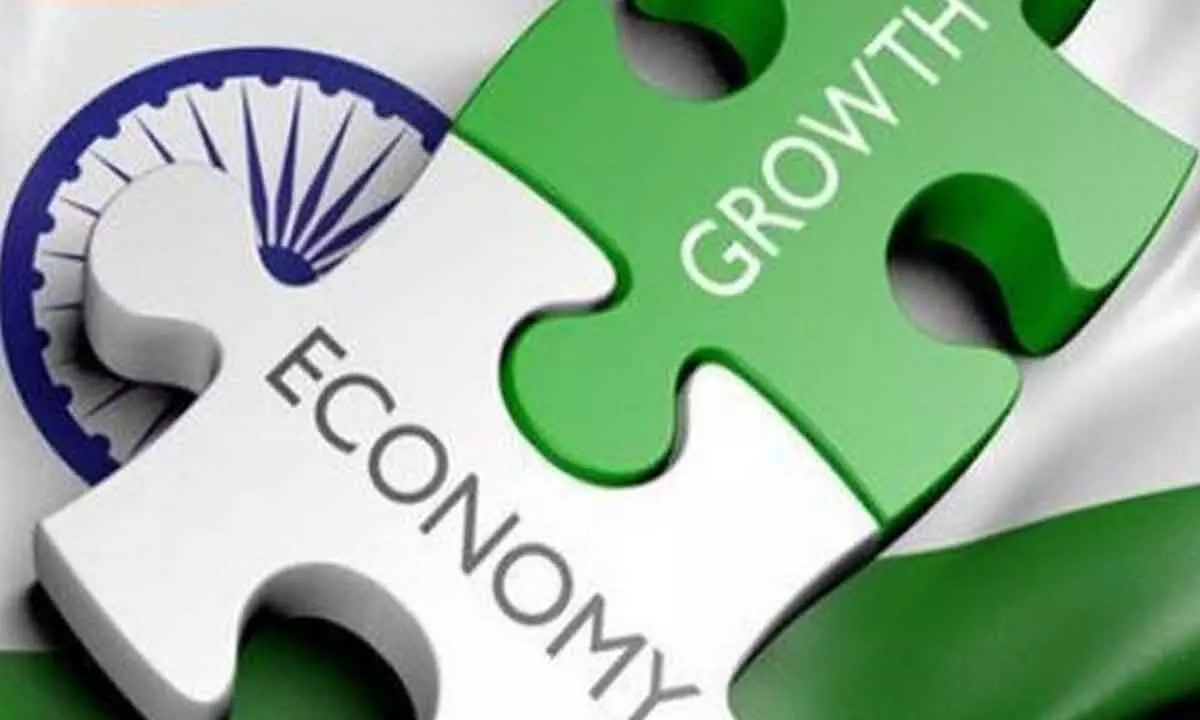Indian economy to grow 6.5% next fiscal: Economic Survey

India's economy is projected to slow to 6.5 per cent in the fiscal year starting April but will remain the fastest growing major economy in the world as it fared better in dealing with the extraordinary set of challenges the globe has faced, the Economic Survey 2022-23 said on Tuesday.
New Delhi: India's economy is projected to slow to 6.5 per cent in the fiscal year starting April but will remain the fastest growing major economy in the world as it fared better in dealing with the extraordinary set of challenges the globe has faced, the Economic Survey 2022-23 said on Tuesday.
India's gross domestic product (GDP) growth of 6.5 per cent in 2023-24 compares with an estimated 7 per cent expansion in current fiscal year (April 2022 to March 2023) and 8.7 per cent in the previous year. Like the rest of the world, India too faced an extraordinary set of challenges in tightening financial conditions and supply chain disruptions from a prolonged war in Europe but "withstood them better than most economies", the annual document detailing the state of the economy said.
The survey tabled in Parliament by Finance Minister Nirmala Sitharaman, stated that India is the world's third largest economy in PPP (purchasing power parity) terms and fifth largest in terms of exchange rate. "Economy has nearly recouped what was lost, renewed what had paused, and re-energised what had slowed during the pandemic and since the conflict in Europe," it said. While it indicated that inflation may not be too worrisome, borrowing costs are likely to remain 'higher for longer' as an entrenched inflation may prolong the tightening cycle.
India's recovery from the pandemic was relatively quick, growth to be supported by solid domestic demand, pick up in capital investment, the Survey said but highlighted the challenge to rupee with the likelihood of further interest rate hikes by the US Fed.
Current account deficit or CAD may continue to widen as global commodity prices remain elevated and because of strong economic growth momentum. If CAD widens further, the rupee may come under depreciation pressure, it said, adding the overall external situation will remain manageable. On exports, it said the growth moderated in the second half of current fiscal. Slowing world growth, shrinking global trade led to loss of export stimulus in the second half of the current year. Pegging nominal growth at 11 per cent for 2023-24, the survey said the growth in the financial year beginning April 1 will remain strong relative to most global economies, led by sustained private consumption, a pick-up in lending by banks and improved capital spending by corporations.
The optimistic growth forecasts stem from a number of positives like the rebound of private consumption giving a boost to production activity, higher capital expenditure, and near universal vaccination coverage enabling people to spend on contact-based services such as restaurants, hotels, shopping malls and cinemas. The return of migrant workers to cities to work on construction sites leading to a significant decline in housing market inventory is also a factor for the optimistic growth projection, it said.
















